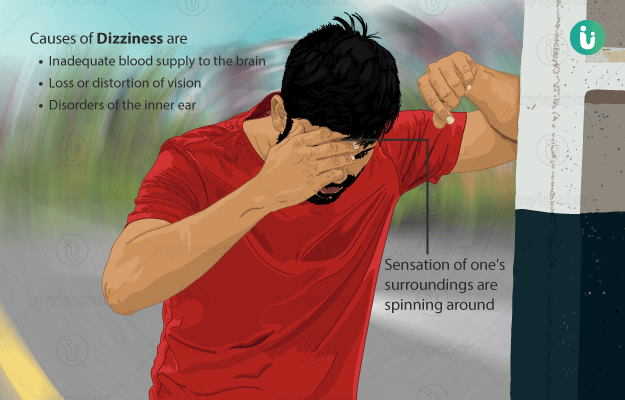Summary
Dizziness is a feeling of losing balance when you stand up suddenly or feeling that you are moving even when you are standing still. It is most commonly caused by low blood sugar, dehydration, low blood pressure, and motion sickness. Sometimes, the cause of dizziness is unknown. Dizziness can be a symptom of an underlying problem such as a migraine, motion sickness or some ear diseases which can affect the perception of balance. It can be diagnosed by your doctor through a detailed history along with some tests related to the possible causes that may lead to the problem. The treatment for dizziness is treating the underlying condition and by taking some precautions, along with, prescribed medications. If not treated, repeated episodes of dizziness could to injuries due to falling or fainting. The outcome for dizziness usually good since most of the times the underlying condition causing dizziness is treatable.

 Doctors for Dizziness
Doctors for Dizziness  OTC Medicines for Dizziness
OTC Medicines for Dizziness
 Lab tests for Dizziness
Lab tests for Dizziness Dizziness articles
Dizziness articles

 Diet for Dizziness
Diet for Dizziness
 First Aid for Dizziness
First Aid for Dizziness
 Home Remedies for Dizziness
Home Remedies for Dizziness
 Homeopathic Treatment of Dizziness
Homeopathic Treatment of Dizziness




































 Editorial Team
Editorial Team




 Dr. Rachita Narsaria
Dr. Rachita Narsaria











